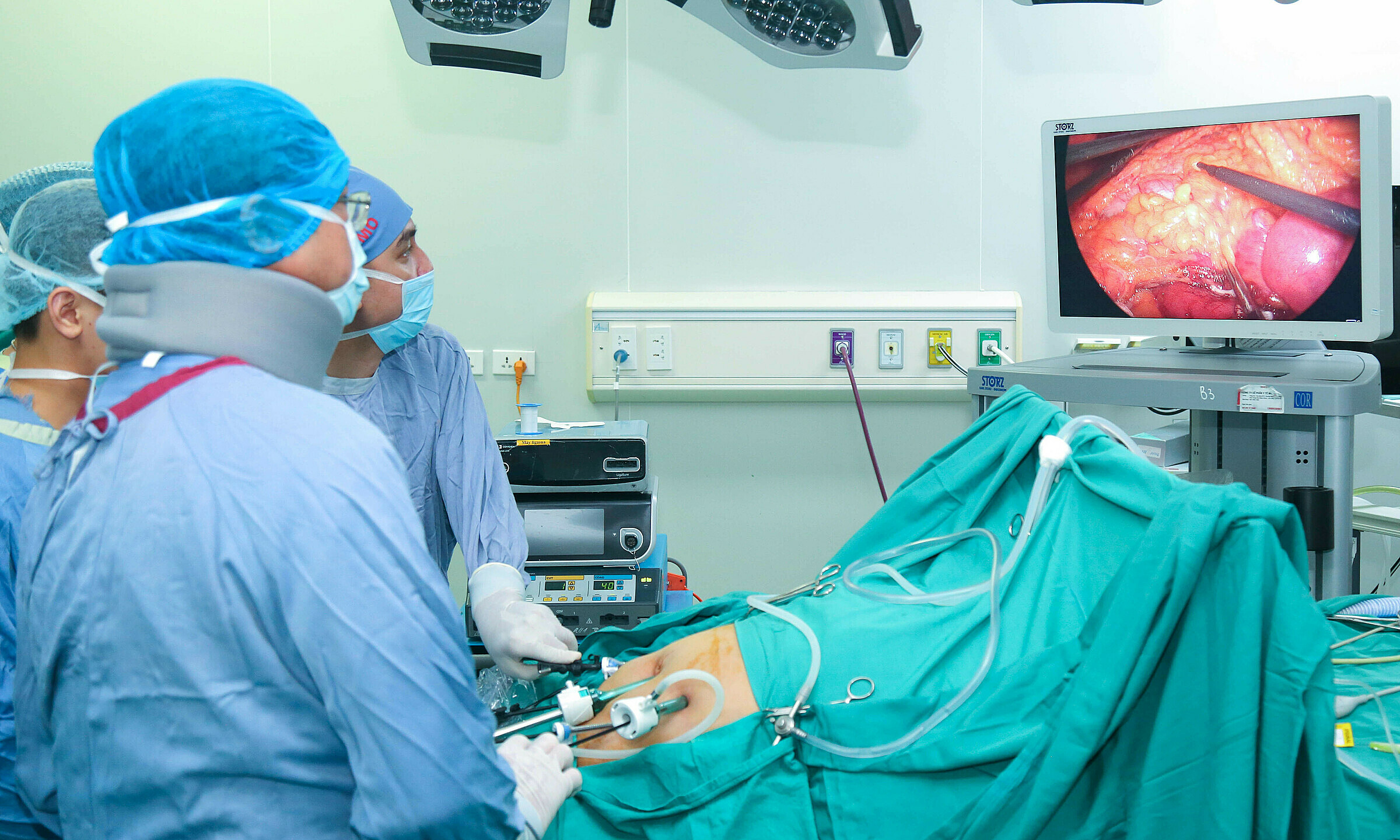The man sought treatment at Viet Duc Hospital after experiencing three months of bowel problems, including persistent tenesmus, bloody stools, and rapid weight loss. A colonoscopy revealed a large tumor in his rectum, about 10 cm from the anus, and a smaller, 2 cm tumor in his right colon.
According to Associate Professor Pham Hoang Ha, Head of the Department of Gastrointestinal Surgery, simultaneous diagnoses of rectal and colon cancer are infrequent, occurring in only 2-5% of colorectal cancer cases.
After consultations, the patient underwent laparoscopic surgery to remove the affected sections of his colon and rectum, along with all cancerous lymph nodes in his abdomen. The procedure successfully removed the tumors, preserving function and enabling his recovery.
 |
Surgeons removing the patient's tumors. Photo: Hospital provided |
Colorectal cancer is the most common gastrointestinal cancer. According to GLOBOCAN 2022, it ranks 4th in new cases and 5th in cancer-related deaths globally. Vietnam records nearly 17,000 new cases and over 8,000 deaths annually. The disease often presents with vague symptoms, leading to delayed diagnosis.
Early detection allows for endoscopic treatment with high success rates and rapid recovery. In later stages, however, patients often require extensive surgery and complex treatment. Precancerous lesions or colorectal polyps, when detected early, can be completely removed, leading to a cure. Early diagnosis can result in a 5-year survival rate of over 90%.
The Vietnam Association of Gastroenterology and Endoscopy recommends that individuals over 45 experiencing bowel irregularities, changes in stool, or with a family history of cancer should undergo colorectal cancer screening for early detection and improved treatment outcomes.
Colonoscopy is the most effective screening method, enabling early detection of precancerous lesions and abnormalities, polyp removal, and tissue biopsies for pathological analysis.
Modern lifestyles characterized by diets high in red meat, low in fiber, lack of exercise, smoking, and alcohol consumption contribute to increased risk. Therefore, maintaining a high-fiber diet, limiting red meat and processed foods, exercising for 30 minutes daily to stimulate bowel movements, avoiding tobacco and alcohol, and adhering to screening schedules based on risk factors are crucial for prevention.
Le Nga












